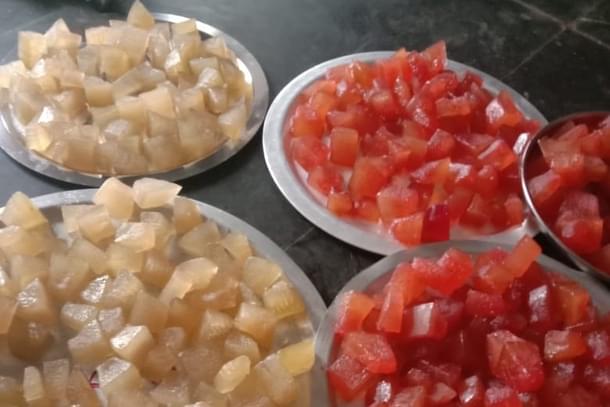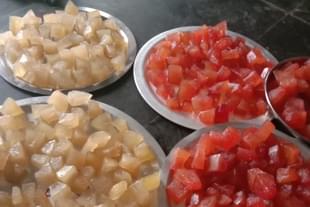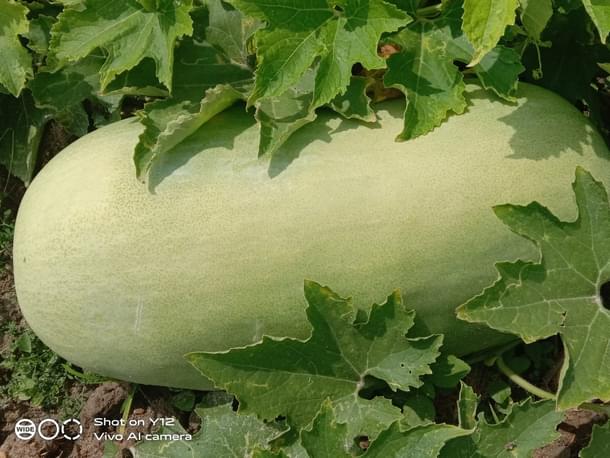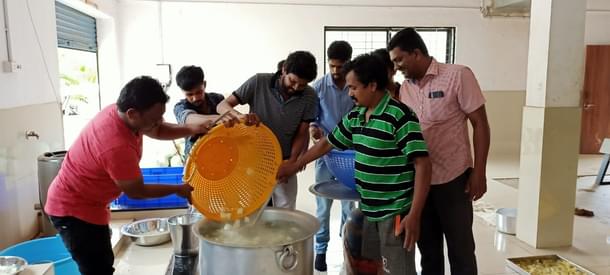Ideas
From Agra Petha To Araga Petha: How The Lockdown Crisis Turned Into A ‘Sweet’ Opportunity For This Village In Karnataka
Harsha Bhat
May 18, 2020, 01:14 PM | Updated 01:14 PM IST
Save & read from anywhere!
Bookmark stories for easy access on any device or the Swarajya app.


Last Thursday, Karnataka cleared the ordinance to bring in changes to the Agricultural Produce Marketing Committee (APMC) Act that will enable farmers to choose who they sell their crop to and how.
This comes as a huge relief to farmers especially in this lockdown era where many of them were staring at bleak futures as far as the annual harvest is concerned.

For, a market of choice was a privilege very few farmers could boast of.
Add to that the lockdown, which had, for the first few weeks, restricted even the movements of trucks carrying vegetables and other farm produce.
But the silver lining to these dark clouds are tales of enterprise, entrepreneurship and opportunity that are emerging out of villages where farmers had almost given up on the crops this year.
Hear this tale from the Araga village in Shivamogga in Karnataka.
Farmer Keerthana in Tirthahalli taluk of Shivamogga painfully watched large stretches of land covered in light green creepers, heavily laden with huge ashgourds, await harvest.
All he sought was a decent price for the crop.
But he was not alone. His 4.5 acres of land was among around 200 acres in this village that annually produces over 2,000 tonnes of ashgourd.
He himself had over 60 tonnes of the saleable produce of the total 90-tonne harvest.
The virus though left a bitter taste in the mouths of these farmers this year. For, these fields every year bore fruit that made a journey from this Araga village here to Agra, where they transformed into the delicious and famous petha.
But the lockdown and the restricted movement of vehicles not just curbed but meant zero demand from the regular buyers.
So these bulgy veggies that would turn into world famous Agra petha were seated on soil awaiting some help.
This is when Shashanka Hegde of the Hingaara Foundation took to social media to seek help to sell these gourds, and also brought it to the notice of the Horticulture director.
They, along with the Tahsildar Dr Shripad, and MLA Araga Jnanendra, tried to work out ways to help the farmers.
‘If ashgourds can’t go to Agra, the petha can come to Araga’.
They got Kuntavalli Vishwanath of Ibbani Foods, a food processing unit on board, and decided to try and create a local variety of the petha. Umpteen Youtube videos and experiments later, with expertise from sweet chefs, they got it right and thus was born this petha in Araga.

They then bought over two tonnes of ashgourd from farmers in the vicinity and are now manually doing the cutting and the like.
They aim to increase it to 10-15 tonnes once they mechanise the process and are glad that the lockdown has indeed resulted in a sweet discovery.
“We initially even mulled if we ourselves could send the crop across to the usual buyers. But the cost of transporting these ashgourds to Agra would be not less than Rs 60,000, which is when we decided to try and see if we can create an Araga petha itself. And the experiment has been successful,” says MLA Jnanendra.
“Around 200 tonnes of the 2,000 has been lifted for this, but we are working on marketing the rest too,” he adds.
The tahsildar is glad that their effort has borne fruit although they are still contemplating the sale of the remaining produce.
“It is strange but the crisis has made this possible. A local product has seen value addition and transformed into an entirely new product,” says Dr Shripad, content with the experiment turning fruitful.
They have also managed to sell about 600 to 650 tonnes but the prices that the farmers got were almost half of what they got usually.
Over 1,000 tonnes is yet to find a market and the village is trying to reach out to other towns now with the easing of the lockdown.
But this opportunity that arose out of the crisis has boosted the spirits of all those involved.
The efforts of the local administration and people seem like an appropriate example of the Prime Minsiter’s call for being ‘vocal about local’ being put to practice.
Harsha Bhat is an author, linguist, content strategist, and a compulsive chronicler of Bharat's civilisational heartbeat.





